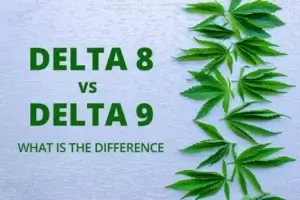Is Cannabis Legal In Bangladesh?
No. Cannabis is not legal in Bangladesh.
Bangladesh, a nation characterized by its rich history and vibrant culture, has a nuanced relationship with cannabis, known locally as ‘ganja’ or ‘bhang’. The narrative encompasses historical usage, stringent legislation, and emerging discussions around potential reforms, painting a compelling picture of cannabis’s place within Bangladeshi society.
Cannabis has been deeply ingrained in the historical and cultural fabric of Bangladesh. The plant, which grows well in the fertile Bangladeshi soil, has been used by locals for centuries for its medicinal, recreational, and spiritual purposes. Its consumption has been a part of religious and cultural festivals, such as Holi and Shiva Ratri, demonstrating an early societal acceptance.
Legal Repercussions of Cannabis in Bangladesh
Despite this long-standing cultural acceptance, Bangladesh’s legal stance on cannabis is markedly prohibitive. The introduction of the Narcotics Control Act in 1990 reflected global attitudes towards cannabis, categorizing it as a narcotic substance. The unauthorized cultivation, possession, and use of cannabis have since been criminalized, with offenders facing severe penalties, including imprisonment.
Bangladesh Illicit Cannabis Trade and Use
Despite the legal deterrents, Bangladesh continues to grapple with illicit cannabis trade and use. The clandestine cultivation of cannabis thrives in certain pockets of the country, feeding into a black-market industry. This demonstrates the challenges associated with controlling cannabis production and consumption, in spite of stringent legal measures.
Medicinal Cannabis in Bangladesh
As global conversations surrounding the therapeutic benefits of cannabis gain momentum, Bangladesh is not immune to these discussions. Advocacy groups, health practitioners, and forward-thinking policymakers are prompting a reevaluation of Bangladesh’s strict anti-cannabis laws.
The potential therapeutic benefits of cannabis for a range of conditions – including chronic pain, epilepsy, and multiple sclerosis – are forming the basis of these discourses. However, these conversations are still nascent and face significant societal and political resistance.
Public Sentiments and the Prospects of Legal Reforms
Public sentiment towards cannabis in Bangladesh is diverse. While many Bangladeshis uphold the government’s position, viewing cannabis as a harmful substance, there is an emerging recognition of its potential therapeutic benefits, particularly among the younger, urban population.
The conversations around cannabis law reform in Bangladesh are still in their infancy, and the road to potential legalization is steep. However, the worldwide trend of decriminalization and medicinal legalization is gradually influencing the dialogue within the country.
Bangladesh’s relationship with cannabis – from its early acceptance and integration into cultural practices to stringent legal prohibition and the burgeoning dialogue around medicinal use – provides a fascinating perspective on the country’s societal and legal evolutions.
The changing global landscape around cannabis is likely to influence Bangladesh’s narrative, possibly guiding it towards a path of reconsideration and reform. This ongoing conversation is a crucial part of Bangladesh’s evolving socio-political discourse, and its trajectory could provide valuable insights into the broader global debate surrounding cannabis legality and use.






